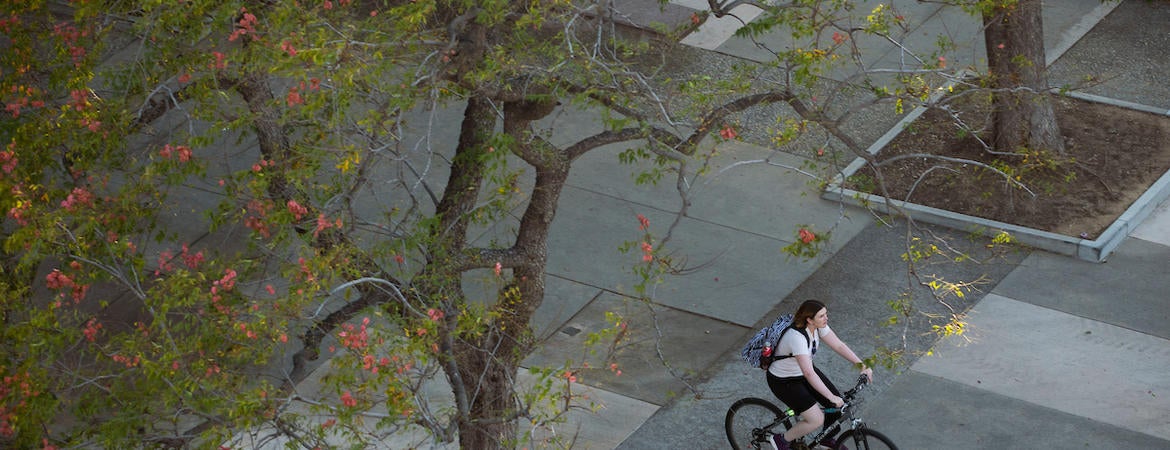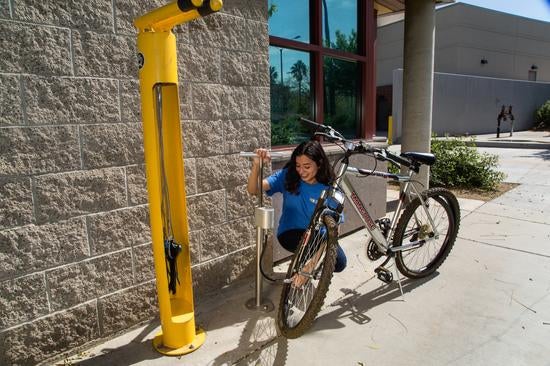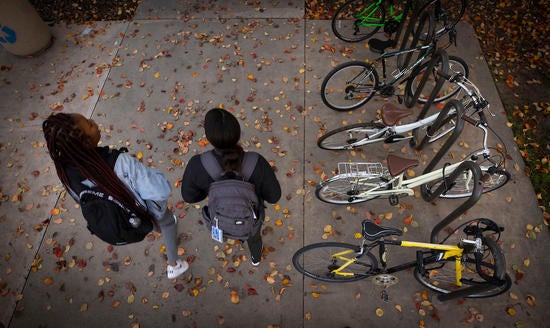UC Riverside has been named a Bicycle Friendly University by the League of American Bicyclists in recognition of its promotion of safe, accessible bicycling on campus.
The league, a national grassroots organization, announced UCR’s certification Feb. 18 following an application process. The campus is among 38 colleges and universities to join the program this year.
“This is our first application, and we are proud to have received the Bronze designation,” said Tara Elizabeth Pueschel, transportation demand management specialist with Transportation Services. “We hope to continue to improve our program and provide for a campus that is welcoming to bicyclists.”
The campus has over 3,000 bike parking stalls in the form of racks, lockers, and covered cages and six fix-it stations that are accessible 24 hours a day and include tools for minor repairs.
As part of a partnership with a local business, a repair shop operates once a week in a trailer at Parking Lot 19. That service has been suspended due to COVID-19 but will return when safe.
UCR has promoted bicycling as an alternative transportation mode that saves money, reduces the campus’s carbon footprint, and provides health benefits.
Transportation Services offers free California bike licenses and registration to all students and employees.
The campus has about 1,000 active bicycle registrations and 231 bicyclists and walkers enrolled in an employee Alternative Transportation Program that provides them an allotment of free parking passes and free day use of locker and shower facilities at the Student Recreation Center.
The Bicycle Friendly University program includes 212 colleges and universities awarded certifications by the league. The application process looks at what kinds of resources campuses provide, such as bike lanes and paths, safety programs, and bike racks.
“These colleges and universities are leading by building healthy environments where people can safely get around while improving the well-being of their community by enabling access to sustainable transportation options.” said Bill Nesper, executive director of the League of American Bicyclists.
The league offers free tools, resources, and technical assistance to members.






